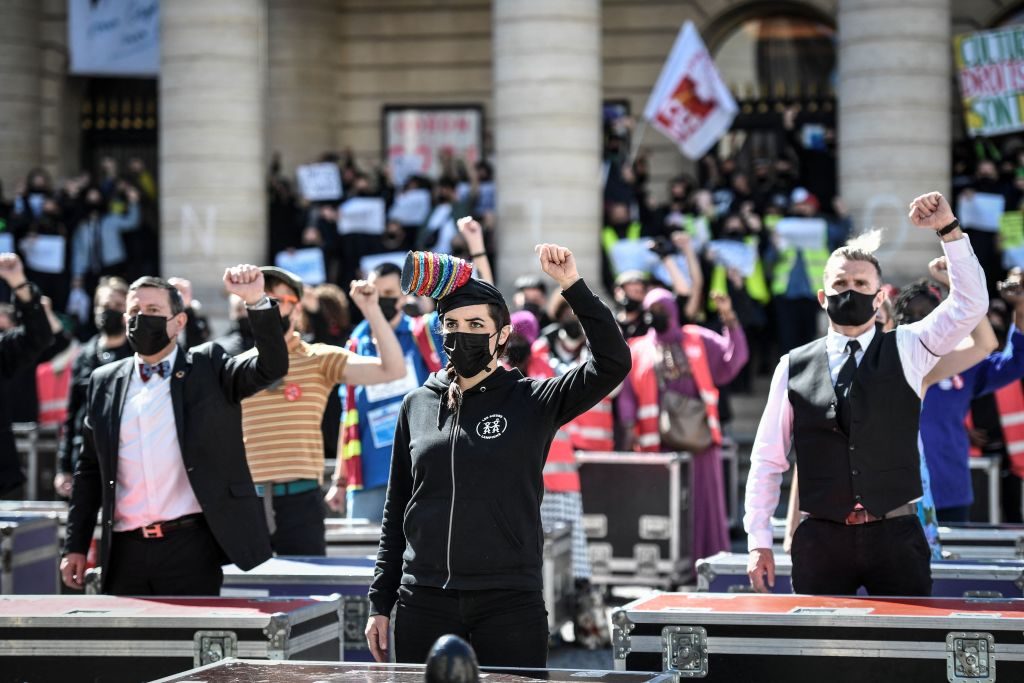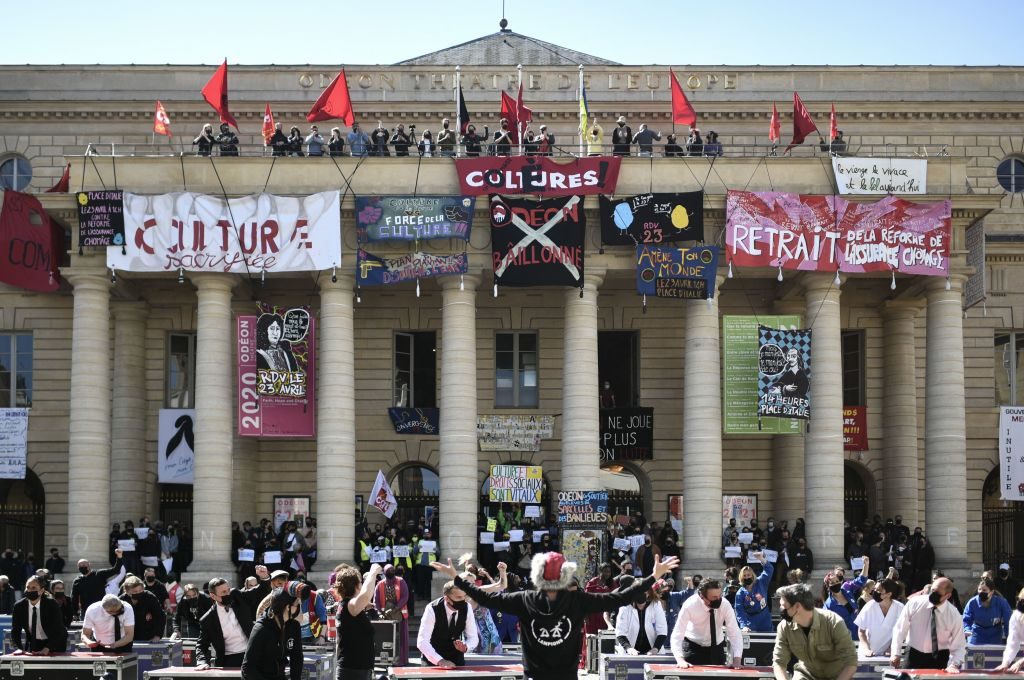Culture venues can finally reopen to the public in France after months of lockdown. But arts workers who have been occupying theaters in protest against pandemic-related closures say their needs have still not been met—and many won’t leave, preventing some theaters from reopening.
For the last two months, culture workers in France have been protesting on-site at scores of theaters around the country, demanding they reopen and that staff receive better financial support. But when theaters, museums, and cinemas were finally given go-ahead to open their doors on May 19 after more than six months of lockdown, few protestors cried victory.
Instead, many refused to leave the theaters where they have been camping out. Some 70 to 80 theaters around the country remain occupied to some extent, according to France’s General Confederation of Labour union for performing arts, which helped spark the protest movement that has now expanded well-beyond their initial rallying call. The protesters’ list of demands has grown and, in some extreme cases, performance spaces are still waiting anxiously to reopen as their spaces remain occupied.

Protesters outside the occupied Odeon theatre against a reform of the unemployment insurance, in Paris on April 23, 2021. Photo: Stephane de Sakutin/AFP via Getty Images.
The situation is slowly evolving as more activists move to alternative cultural centers. At Marseille’s national theater La Criée, however, the show cannot go on quite yet. “I’ve been forced to cancel performances,” the theater’s dejected director, Macha Makeïeff, told Artnet News. “For security reasons, it’s impossible for us to open under these circumstances.”
Describing a deadlock worthy of its own dramatic rendition, Makeïeff said she felt stuck between a rock and a hard place, despite on-going negotiations with the occupiers. “There’s something absurd about an entire sector of [artistic] activity devouring itself,” she said. “We want to be sensitive to their demands and, at the same time, we absolutely can’t prevent art, and the artists and the theater workers from doing the job they love.” Indeed, letting culture workers go back to work had been the main focus of the movement in the first place.
Going to court is not something Makeïeff wants to do, like some other French theaters have, though she said that decision is not entirely up to her, as director of a state-supported space. In any case, Makeïeff agrees with several of the unmet demands of the mostly student protesters still occupying La Criée. They are calling for extended Covid-relief for intermittent workers, the cancellation of controversial unemployment insurance reforms, and greater investment in job creation.
The government has responded by pushing the Covid-relief period back to December 31 from its earlier end-date in August and promising an additional €150 million ($182 million) of funding.
That doesn’t come close to cutting it, Ghislain Gauthier, deputy general secretary to the performing arts union, told Artnet News. He estimated that freelance and temporary culture workers have lost some €600 million ($731 million) in earnings since the onset of the pandemic, and that most new government investment in the arts doesn’t go toward job creation.
“We have a long way to go before working conditions normalize,” he said, adding that reducing unemployment insurance through planned government reforms during a period of “little or no work is unheard of.”
“We’re heading towards a catastrophic situation, where we risk losing industry professionals who will look for other jobs [outside the arts],” he said.
Despite this, the General Confederation of Labour union, which is not in charge of the occupation movement, has asked protesters “not to block performances,” and to negotiate through other means with theaters. Their message seems to have hit home: Top theaters, like the Odeon theater in Paris, have slowly started to open following cancelled performances and a tense stand-off with demonstrators who eventually moved over to the 104 cultural center on Sunday, May 23. “Either way, the occupation continues on,” said Gauthier.







